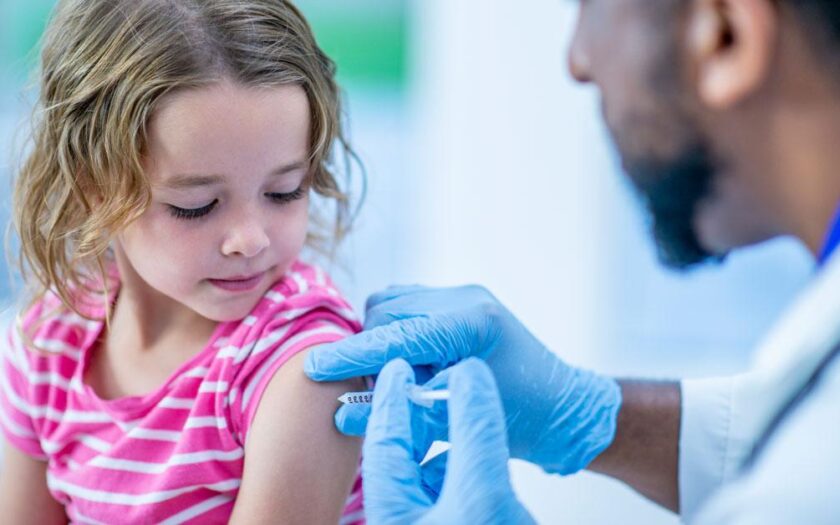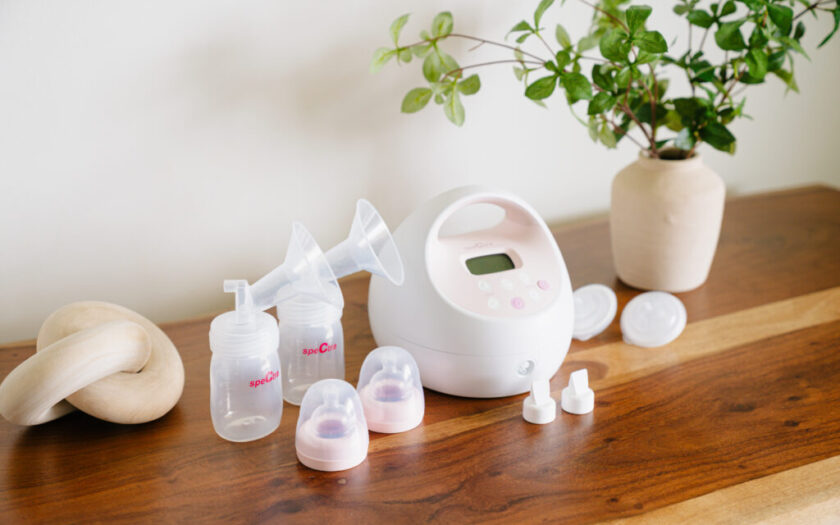Newborns receive protection from certain diseases through antibodies (proteins the body produces to fight illnesses) passed from their mothers before birth. Breastfed babies continue to receive antibodies from breast milk, but this protection is only temporary. Additionally, for some diseases, a baby may not acquire protective antibodies during pregnancy at all. This highlights the importance of vaccinating infants early in life, before they are exposed to harmful diseases.
Vaccination is a method of developing immunity against certain diseases. It can involve introducing small amounts of a killed or weakened germ that causes the disease, or simply using a small part of the germ, such as a protein or a piece of its genetic material.
Germs may include viruses (such as the measles virus) or bacteria (like pneumococcus). Vaccines activate the immune system as if there were a real infection, prompting the body to fight the “infection” and remember the germ for future protection. This enables the immune system to target the germ more effectively if it ever enters the body again.
Types of Vaccines:
- Attenuated (weakened) live germs: Used in vaccines for measles, mumps, rubella (MMR), and chickenpox.
- Killed (inactivated) germs: Found in vaccines like the flu shot and the inactivated poliovirus vaccine.
- Toxoid vaccines: Contain inactivated toxins produced by germs, such as in the diphtheria and tetanus vaccines.
- Conjugate vaccines: Combine small pieces of the germ with proteins to trigger a stronger immune response, used in vaccines against hepatitis B, HPV, whooping cough, and meningitis.
- mRNA (messenger RNA) vaccines: Use a lab-created piece of RNA that instructs the body to make a protein similar to one from a germ, which in turn prompts the immune system to produce antibodies. Some COVID-19 vaccines use this technology.
The American Academy of Pediatrics (AAP) advises giving combination vaccines (several vaccines in one shot) whenever possible. These combination vaccines reduce the number of shots children receive and have been proven safe. Since babies encounter many germs daily, their immune systems can handle additional germs from combination vaccines without issue. Fewer shots also mean fewer doctor visits, making it more likely that babies receive all the necessary vaccinations.
Required Vaccines for Children:
The AAP recommends the following vaccines, although variations in schedule are possible. New vaccines may also be introduced, and some (like the dengue vaccine) are only administered to high-risk children. Your doctor will guide you through the right vaccines and schedule for your child.
Recommended Vaccines:
- Chickenpox (varicella) vaccine
- COVID-19 vaccine
- Dengue vaccine
- Diphtheria, tetanus, and pertussis (DTaP, Tdap) vaccine
- Hepatitis A (HepA) vaccine
- Haemophilus influenzae type b (Hib) vaccine
- Hepatitis B (HepB) vaccine
- Human papillomavirus (HPV) vaccine
- Influenza (flu) vaccine
- Measles, mumps, and rubella (MMR) vaccine
- Meningococcal (MenACWY, MenB) vaccines
- Pneumococcal (PCV13, PPSV23) vaccines
- Polio (IPV) vaccine
- Rotavirus (RV) vaccine
Protection against **respiratory syncytial virus (RSV)** differs. An RSV vaccine is recommended for pregnant women if their baby will be born during RSV season (fall to spring in the U.S.). If the mother didn’t receive the vaccine, the baby can get an RSV antibody shot before or during the season, with some babies requiring another shot the following year.
Concerns About Vaccination:
Some parents might hesitate to vaccinate their children due to concerns about possible reactions or the fear that the child may contract the disease the vaccine is meant to prevent. However, the components of vaccines are weakened, killed, or only parts of the germ are used, making it highly unlikely for the vaccine to cause any serious illness.
In rare cases, vaccines may cause mild side effects like soreness at the injection site or a fever. However, severe reactions are extremely uncommon. The risks associated with vaccines are much smaller compared to the health risks posed by the diseases they prevent.
Keeping up with vaccinations is one of the best ways to safeguard children and families from infectious diseases.



